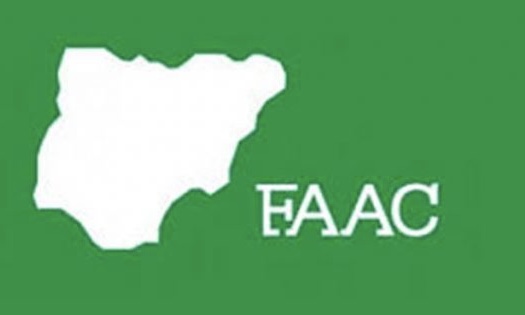The Federation Account Allocation Committee (FAAC) announced a substantial revenue distribution for August 2025, totaling N2.225 trillion. This marked a significant increase of N224.118 billion, or 11.2%, compared to the N2.001 trillion disbursed in July, and represented the third consecutive month of revenue growth. This robust figure comprises several revenue streams: N1.478 trillion from statutory revenue, N672.903 billion from Value Added Tax (VAT), N32.338 billion from the Electronic Money Transfer Levy (EMTL), and N41.284 billion from exchange differences. The total gross revenue for August reached N3.635 trillion, from which deductions for cost of collection (N124.839 billion) and various transfers, interventions, refunds, and savings (N1.285 trillion) were made before arriving at the distributable amount.
The distribution of the N1.478 trillion statutory revenue followed the established formula: the Federal Government received N684.462 billion, states received N347.168 billion, and local government councils received N267.652 billion. Additionally, oil-producing states benefited from a 13% derivation revenue allocation, receiving N179.311 billion. The substantial VAT revenue of N672.903 billion was similarly distributed: the Federal Government received N100.935 billion, states received N336.452 billion, and local governments received N235.516 billion. The EMTL revenue of N32.338 billion was allocated as follows: N4.851 billion to the Federal Government, N16.169 billion to states, and N11.318 billion to local governments. Finally, the exchange difference revenue of N41.284 billion was shared with N19.799 billion going to the Federal Government, N10.042 billion to states, N7.742 billion to local governments, and N3.701 billion to oil-producing states as derivation revenue.
Further analysis of the revenue figures reveals a mixed picture. While the overall revenue distribution increased significantly, gross statutory revenue for August 2025 actually decreased by N231.913 billion compared to July, dropping from N3.070 trillion to N2.838 trillion. Conversely, VAT revenue showed positive growth, increasing by N34.679 billion from N687.940 billion in July to N722.619 billion in August. This suggests a shifting dynamic in the Nigerian economy, with non-oil revenue sources, particularly VAT, playing an increasingly important role.
The fluctuations in specific revenue streams underline the complexities of the Nigerian economy. While oil and gas royalties, VAT, and Customs and Excise Tariff (CET) levies saw notable increases, revenue from Petroleum Profit Tax (PPT), Import Duty, Companies Income Tax (CIT), Excise Duty, and EMTL all experienced declines. This variability underscores the need for continued efforts to diversify the Nigerian economy and reduce dependence on volatile oil revenues. The growth in VAT revenue could indicate increased consumer spending or improved tax collection efficiency, potentially signaling positive economic activity. However, the decline in other sectors like PPT and CIT warrants further investigation to understand the underlying factors and address any potential challenges.
President Bola Tinubu’s announcement in September 2025 that Nigeria had achieved its 2025 revenue target in August, largely driven by non-oil sector proceeds, aligns with the FAAC report. This achievement underscores the growing importance of the non-oil sector in driving economic growth and revenue generation. The consistent rise in VAT revenue, coupled with the President’s statement, signals a positive trajectory for the Nigerian economy’s diversification efforts. However, sustained growth requires continuous policy adjustments and strategic investments to foster a more resilient and diversified economy.
In conclusion, the August 2025 FAAC allocation reflects a complex interplay of factors influencing the Nigerian economy. While the overall distributed revenue showed impressive growth, the underlying details reveal a mixed performance across various revenue streams. The decline in oil revenue, coupled with the growth in VAT and the achievement of the 2025 revenue target, highlights the increasing contribution of the non-oil sector. This shift towards a more diversified economy, though promising, necessitates continued efforts to strengthen non-oil sectors, improve tax administration, and implement sound fiscal policies to ensure sustained economic growth and stability. Further analysis of the individual revenue stream fluctuations is crucial for understanding the specific challenges and opportunities within the Nigerian economy and for developing targeted interventions to promote balanced and sustainable development.














